A lengthy expression of an insighful meditation upon a deep cleansing.
And he became angry. Up till now he had kept right, but the vision of Florence subdued him. He threw himself, in desperation, on a chair, no longer knowing what would become of him, gathering what of courage remained to him to descend to the church, where the Office was beginning.
He dragged himself there, and held himself down, assailed by filthy temptations, disgusted with himself, feeling his will yielding, wounded in every part.
And when he was in the court he remained overwhelmed, asking himself where he could take shelter. Every place had become hostile to him; in his cell were carnal memories, outside were temptations against Faith, “or rather,” he cried, “I carry these with me always. My God, my God! I was yesterday so tranquil.”
He strolled by chance into an alley, when a new phenomenon arose.
He had had, up to this hour, in the sky within him, a rain of scruples, a tempest of doubts, a thunderstroke of lust; now was silence and death.
Complete darkness was within him.
He sought his soul by groping for it, and found it inert, without consciousness, almost icy. He had a body living and healthy; all his intelligence, all his reason, and his other powers, his other faculties, were benumbed little by little, and stopped…the soul ends by being sequestered alive in a corpse; in this case it was the living body that detained a dead soul.
Harassed by fear, he disengaged himself with a supreme effort, he would make a visit to himself, see where he was…
In spite of the terror which rushed upon him…He saw himself exhausted; he knew that he had no further force to extirpate the last roots… He felt himself incapable of all work…the conviction that God rejected him, that God would aid him no more. This certainty tore him to pieces. It could not be expressed, for nothing could translate the anxiety, the anguish of a state through which he must have passed who could understand it.while in this state is danger, clinging and absolute, the immovable thought of abandonment, obstinate fear, which nothing diminishes, nothing appeases.
One dare not advance nor retreat; rather cast oneself on the ground, with bowed head, and wait the end of what we know not, and be assured that the menaces we ignore, and those at which we guess, are removed. Durtal was at this point; he could not return on his steps, for the way he had quitted horrified him. He would rather have died than return to Paris, there to begin again his carnal experiences, to live again his hours of libertinage and lassitude; but if he could not again retrace his road, neither could he advance, for the road ended in a blind alley. If earth repulsed him, heaven at the same time was closed for him.
He was lying, half on his side, in the darkness, in the shade, he knew not where.
And this state was aggravated by an absolute failure to understand the causes which brought him there, was exaggerated by the memory of graces before received.
Durtal remembered the sweetness of the beginning, the caress of the divine touches, the steady progress without obstacles, the encounter with a solitary priest, his being sent to La Trappe, the very ease with which he bent to the monastic life, the absolution which had such truly sensible effects, the rapid and clear answer that he might communicate without fear.
And suddenly, without his will, he had in fact failed. He who had till then held him by the hand, refused to guide him, cast him off into the darkness without a word.
“All is over,” he thought; “I am condemned to float here below, like a waif which no one wants; no shore is henceforward accessible, for if the world refuses me, I disgust God. Ah! Lord, remember the garden of Gethsemane, the tragic defection of the Father whom Thou didst implore in unspeakable pangs.” In the silence which received his cry he gave way, and yet he desired to react against this desolation, endeavored to escape from his despair; he prayed, and had again that very precise sensation that his petitions did not carry, were not even heard. He called her who superintends allegiance, the Mediatrix of pardon, to his aid, and he was persuaded that the Virgin heard him no longer.
He was silent and discouraged, while the shade grew still more dense, and complete darkness covered him. He did not then suffer any longer in the true sense of the word, but it was worse, for this was annihilation in the void, the giddiness of a man who is bent over a gulf; and the scraps of reasoning which he could gather and knit together in this breaking up, ended by branching out into scruples.
He sought for any sins which since his communion might justify such a trial, and he could not find them. He even tried to magnify his small faults, enlarge his want of patience; he wished to convince himself that he had taken a certain pleasure in finding the image of Florence in his cell, and he tortured himself so violently that he reanimated the soul…
And in these brawling reflections he did not lose the sad faculty of analysis. He said to himself while gauging himself at a glance: “I am like the litter in a circus, trodden down by all the sorrows which go and come to play their parts. Doubts about Faith, which seemed to stretch into every sense, turned in fact in the same circle. And now scruples, from which I thought myself freed, reappear and course through me. “
How should he explain this? Was he who inflicted this torture on him the Spirit of Malice, or God?
That he had been bruised by the Evil One was certain, the very nature of his attacks showed his handiwork, but how could this abandonment of God be explained, for in fact, the Demon could not prevent the Savior from assisting him, and he was quite obliged to conclude that if he were martyrized by the one, the Other took no interest in him, let him be, and retired from him completely?
This certainty deduced from precise observations, this reasoned assurance, finished him. He cried out from the anguish of it, looking at the pond by which he was walking, wishing he might fall in, thinking that death by drowning were preferable to such a life.
Then he trembled before the water which attracted him, and carried away his sorrows to the charm of the woods. He tried to wear himself out by long walking, but he wearied himself without effect, and he ended by sinking down worn and broken at the refectory table.
He looked at his plate, with no courage to eat, no desire to drink; he breathed hard, and, exhausted as he was, could not keep in one place. He rose and wandered in the court till Compline, and there in the chapel, where at least he hoped to find some solace, was the crowning point of all; the mine went off; the soul, sapped since the morning, exploded.
On his knees, desolate, he tried again to invoke help, and nothing came; he choked, immured in so deep a trench, under a vault so thick, that every appeal was stifled, and no sound vibrated. Without courage, he wept with his head in his hands, and while he complained to God that He had brought him thither to punish him in a Trappist monastery, ignoble visions assailed him.
…..and the touch was external, and the vision internal.
He tried to gaze on the statue of Saint Joseph, before which he kept himself, and to see nothing but it, but his eyes seemed to revolve, to see only within, and there filled indecencies. It was a medley of apparitions undecided outlines, and confused colors, which gained precision only in those parts coveted by the secular infamy of man. And this changed again. The human forms vanished. There remained only, in invisible landscapes of flesh, marshes reddened by the fires of what sunset it was impossible to say, marshes shuddering under the divided shelter of the grasses. Then the sensual spot grew smaller still, but remained, and this time did not move; it was the growth of an unclean flood…
He looked in spite of himself, unable to withdraw himself from the outrages imposed by these violations, but the body was still and remained calm, while the soul revolted a groan; the temptation was then of no effect; but if the tricks only succeeded in suggesting to him disgust and horror, they made him suffer beyond measure, while they delayed; all the days of his shameful existence came to the surface, all these enticements to greedy desires crucified him. Joined to the sum of sorrows accumulated since the dawn, the overcharge of these sorrows overwhelmed him, and a cold sweat bathed him from head to foot.
He was in agony, and suddenly, as though he had come to overlook his ministers, and to see if his orders were carried out, the executioner himself entered on the scene. Durtal did not see him, but felt him, and it was indescribable. Since he had the impression of a real demoniac presence, his whole soul trembled and desired to fly, like a terrified bird that clings to the window-panes.
And it fell back exhausted; then unlikely as it may appear, the parts of his life were inverted, the body was upright, and held its own, commanding the terrified soul, repressed this panic in a furious tension.
Durtal perceived very plainly and clearly for the first time the distinction, the separation of the soul from the body, and for the first time also, he was conscious of the phenomenon of a body, which had so tortured its companion by its needs and wants…
He saw that in a flash, and suddenly all vanished. It seemed that the Demon had taken himself off. The wall of darkness which encompassed Durtal opened, and light issued from all parts; with an immense impulse the “Salve Regina, ” springing up from the choir, swept aside the phantoms, and put the goblins to flight.
The elevated cordial of this chant restored him. He took courage, and began again to hope that this frightful desertion might cease; he prayed, and his petitions found vent; he understood that they were at last heard.
The Office was at an end; he gained the guest-house, and when he appeared so worn out and pale before Father Etienn and the oblate, they cried: “What is the matter with you?”
He sank on a chair, and endeavored to describe to them the terrible Calvary he had climbed. “This has lasted,” he said “for more than nine hours; I wonder that I have not gone mad;” and he added, “Yet I never could have believed that the soul could suffer so much. “
The face of the father was illuminated.
He pressed Durtal’s hands and said, “Rejoice, my brother, you have been treated here like a monk.”
“How is that?” said Durtal, surprised.
“Yes, this agony, for there is no other word to define the horror of the state, is one of the most serious trials which God inflicts on us; it is one of the operations of the purgative life. Be happy, for it is a great grace which Jesus does to you.”
“And this proves that your conversion is good,” affirmed the oblate.
“God! But it was not He at any rate who insinuated doubts about the Faith, who caused to be born in me that madness of scruples, who raised in me that spirit of blasphemy, who caressed my face with disgusting apparitions.”
“No, but He allows it. It is frightful, I know it,” said the guest-master. “God conceals Himself, and however you may call on Him, He does not answer you. You think yourself deserted, yet He is very near you; and while He effaces Himself, Satan advances. He twists you about, places a microscope over your faults, his malice gnaws your brain like a dull file, and when to all this are joined, to try you to the utmost, impure visions….”
The Trappist stopped; then, speaking to himself, he said, slowly, “It would be nothing to be in presence of a real temptation, of a true woman in flesh and bone, but these appearances on which imagination works, are horrible!”
“And I used to think there was peace in the cloister!”
“No, we are here on this earth to strive, and it is just in the cloister that the Lowest works; there, souls escape him, and he will at all price conquer them. No place on earth is more haunted by him than a cell, no one is more harassed than a monk.” –J.K. Huysmans ‘En Route’
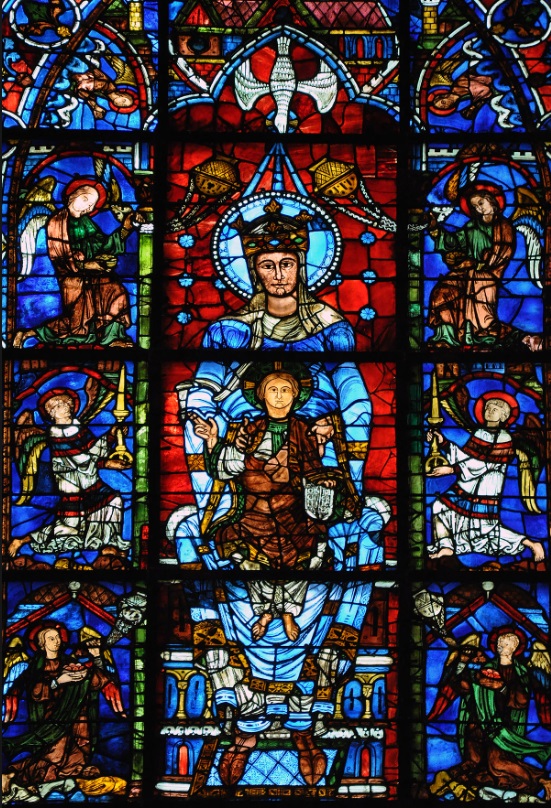


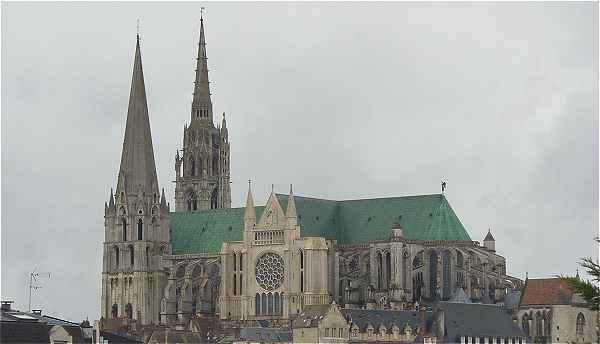
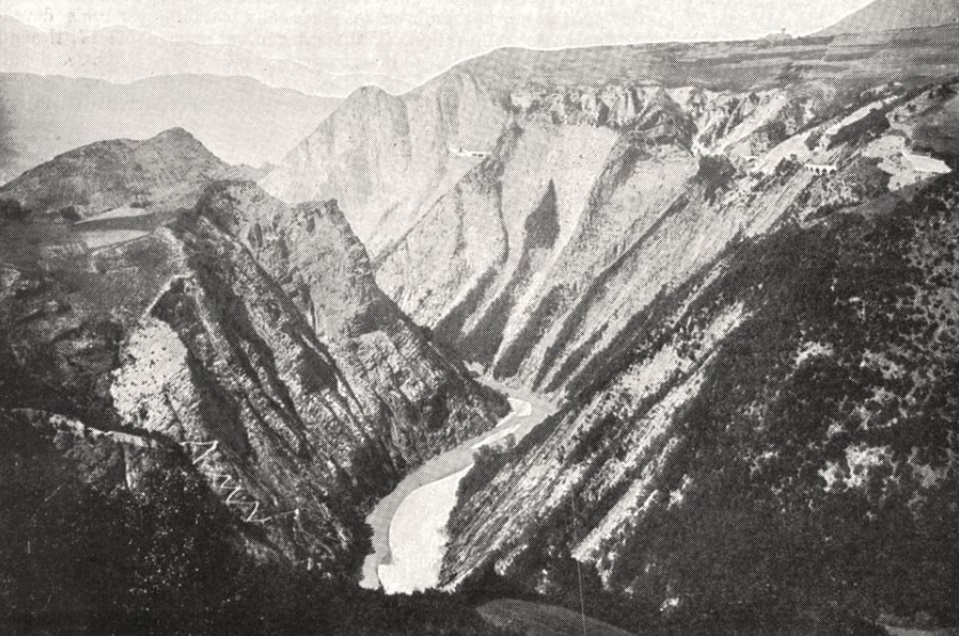
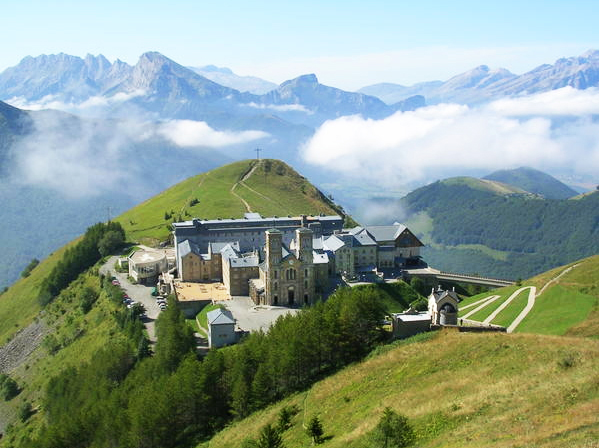
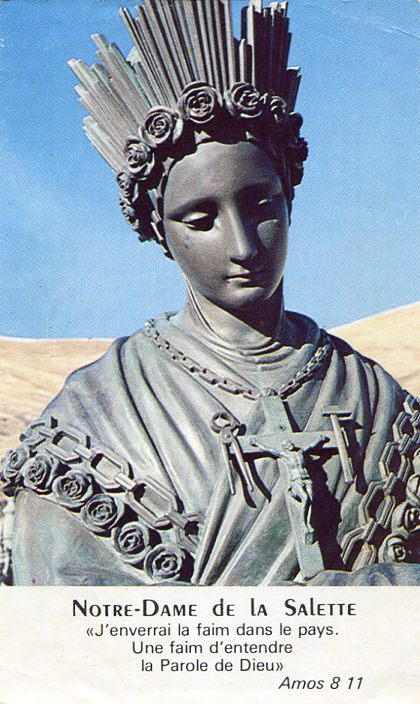
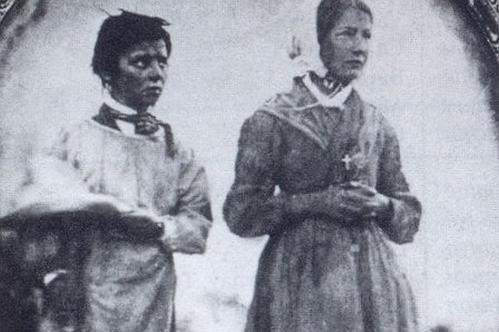
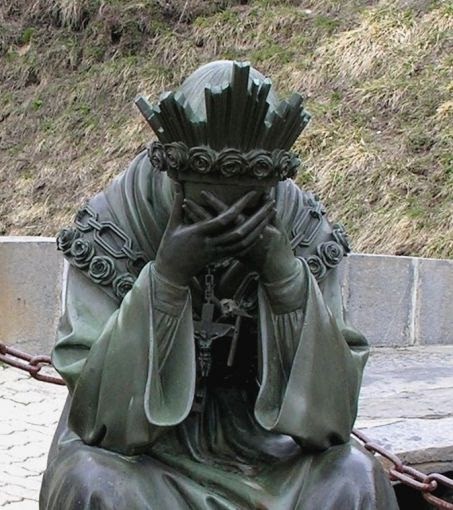
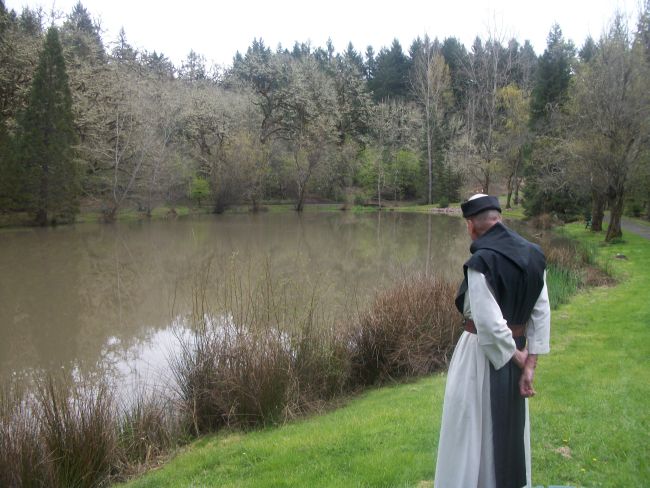
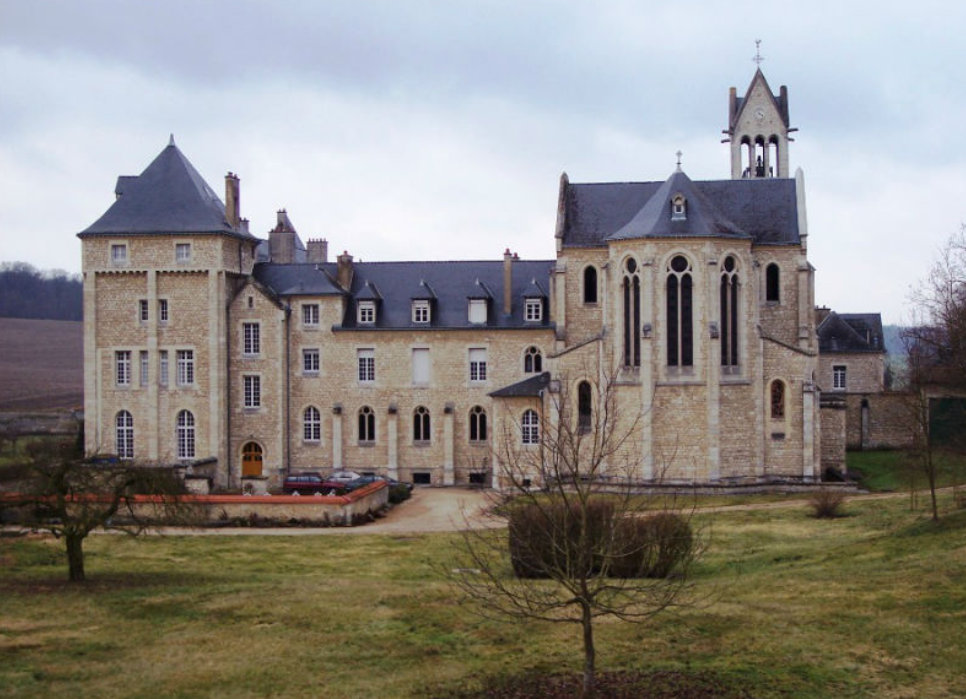
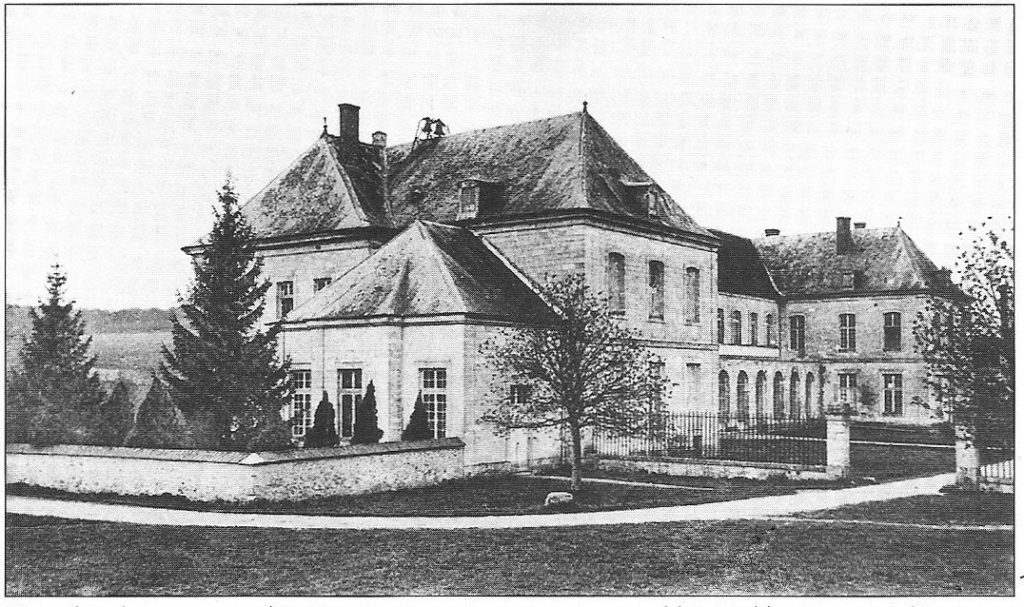
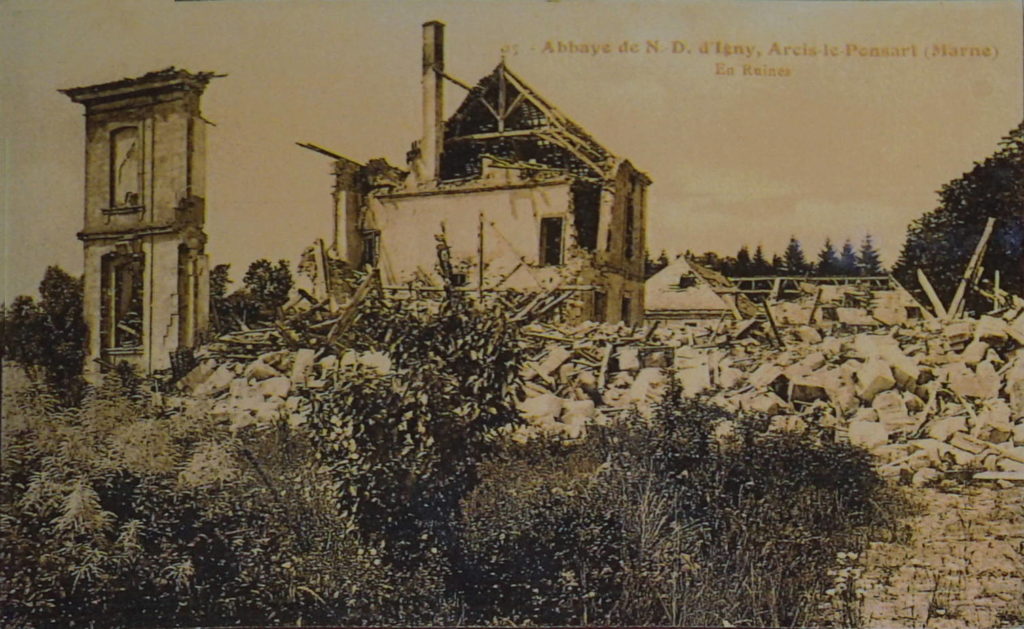
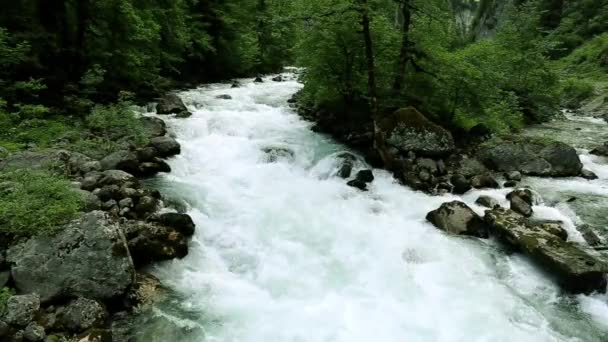

Recent Comments